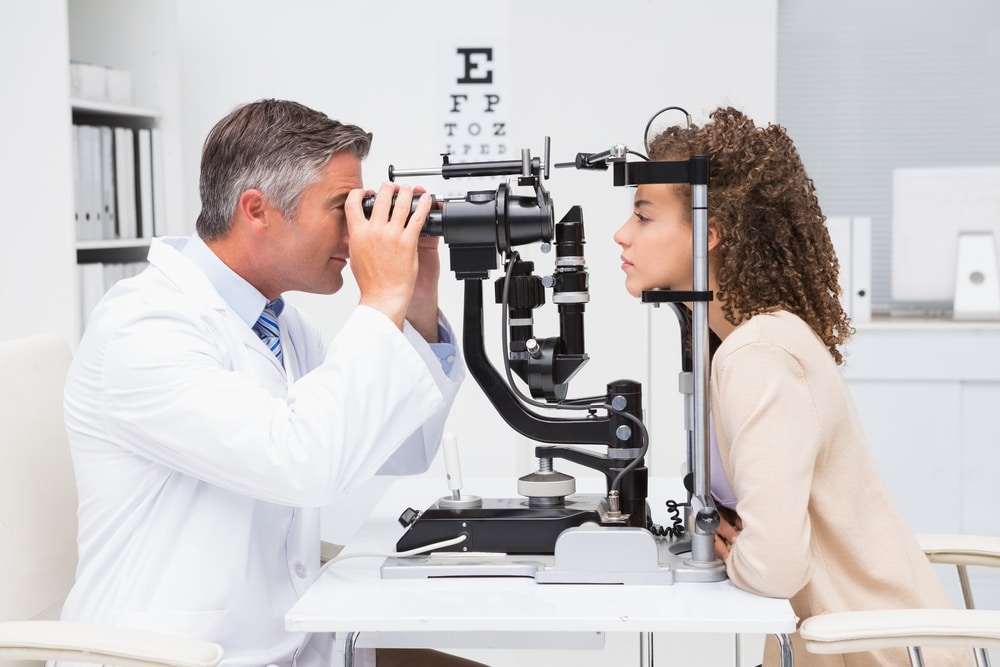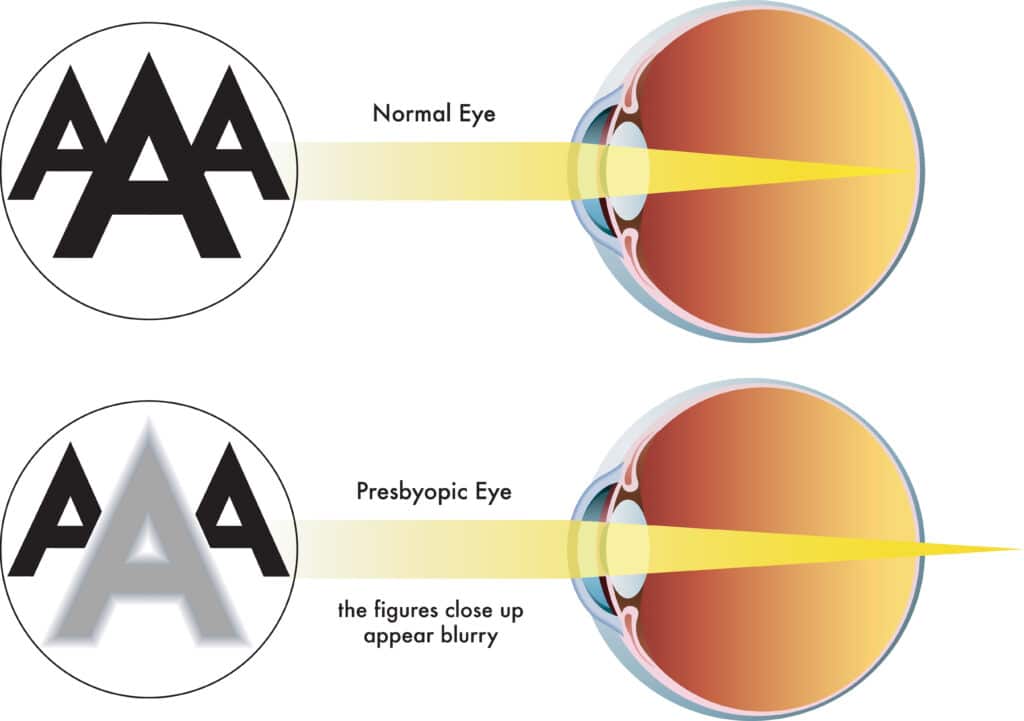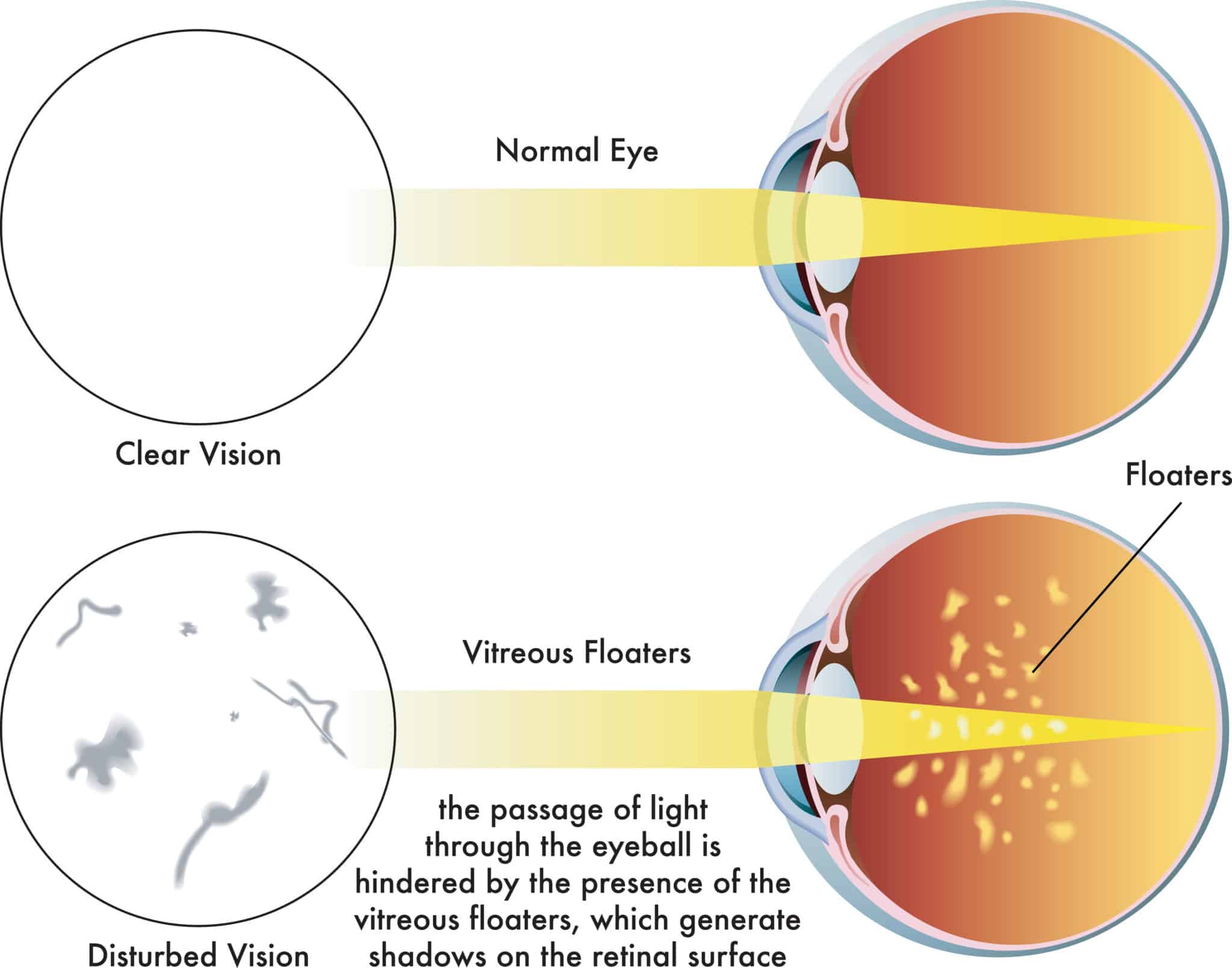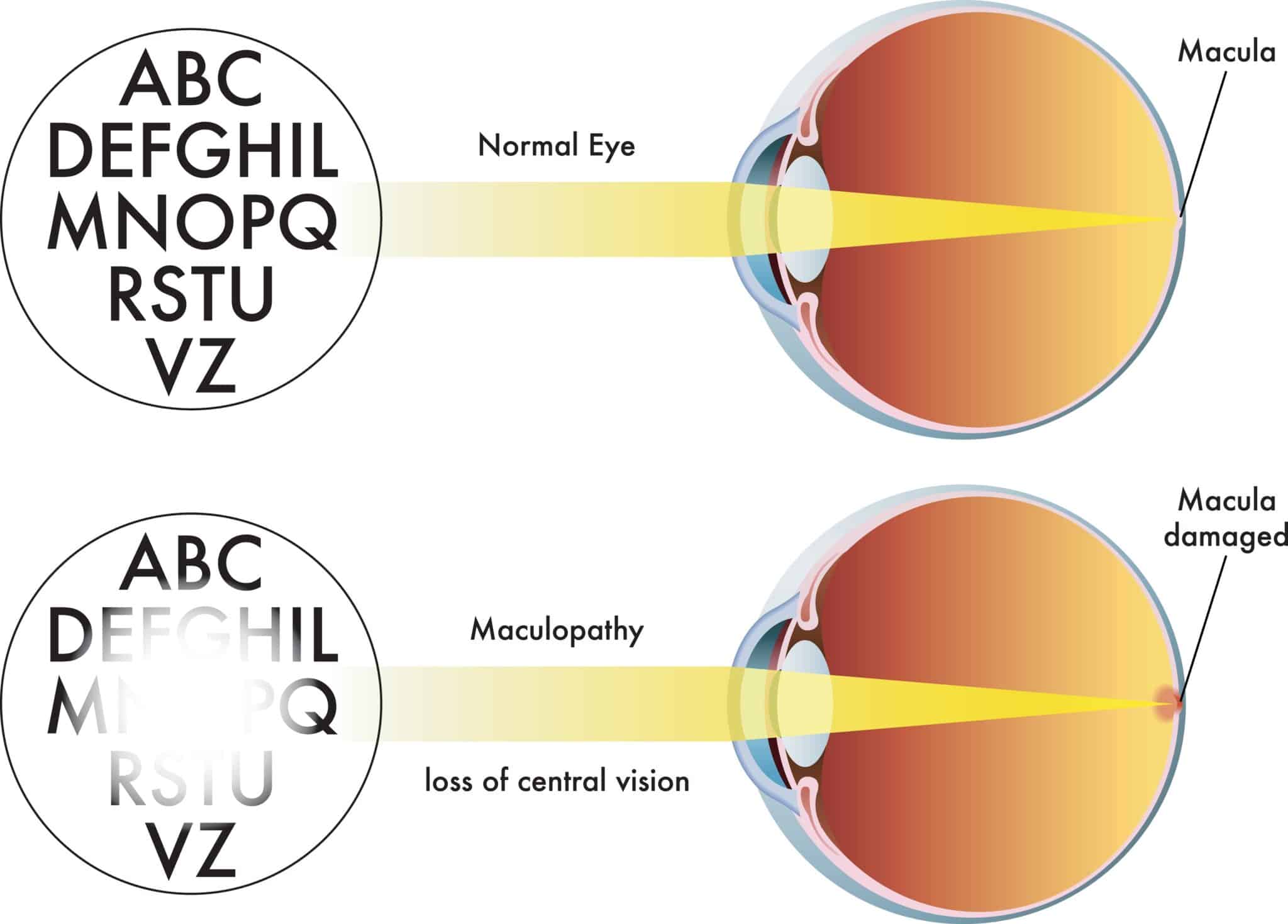
Aging causes changes in every part of your body, including your eyes. But why? There are a variety of different effects that aging eyes can have on your vision for a myriad of different reasons. These can include presbyopia, dry eyes, cataracts, floaters, glaucoma, age-related macular degeneration, and peripheral vision loss. Fortunately, there are ways to help prevent eye problems as you age.
Why Is My Eyesight Getting Worse as I Get Older?
The lens, which sits inside the eye flexes and bends during our youth, and over time, it becomes less flexible. The flexibility of the lens allows the eye to focus on small print. When the lens loses that flexibility, we start to be challenged when trying to focus on small print. We refer to the flexibility of the lens as accommodation. During our early to mid 40s is when the lens has lost a noticeable amount of accommodation.
Common Eye Conditions As You Get Older
Presbyopia

Presbyopia is the phenomenon previously discussed in which the lenses of your eyes begin to harden, which makes it more difficult for your eyes to focus. For adults over the age of 45, the percentage of those afflicted with presbyopia ranges from 83% to 88%.
Dry Eyes
Similar to the hardening of the lens with age, your eyes also become drier as you age. The odds of having dry eyes is particularly high in women who have gone through menopause. Dry eyes can cause intermittent blurriness, burning and itching. Artificial tear drops can be helpful, but their effectiveness can be very fleeting. There are treatments and prescription eye drops that can be necessary to alleviate dry eye..
Cataracts
As you age, cataracts occur when the lens at the center of your eye becomes cloudy. Over time, cataracts can become severe enough that it affects your vision. Untreated cataracts are one of the leading causes of reversible blindness. To tackle this problem, cataract surgery is recommended to replace your cloudy lens with an artificial lens.
Over half of Americans over the age of 80 either have cataracts or have had cataract surgery.
Floaters

Floaters become more common the older you get. They are a result of the gel-like substance inside of your eye shrinking. They appear as tiny pieces of string that float back and forth across your visual field.
They are not a cause for alarm unless there is a sudden increase of floaters and you see flashing lights. These can be signs of vitreous or retinal detachment.
Interestingly, the floaters you see are actually shadows of the actual floaters.
Glaucoma
Glaucoma is when the pressure in your eye becomes too high. In many cases, people do not have symptoms initially. This can be dangerous as unchecked glaucoma can lead to permanent vision loss.
Thankfully, there is a simple test that can be performed to test for it. Once detected, you can take prescription medications, use eye drops, or have surgery to protect your vision.
Glaucoma is most commonly found in Americans over the age of 60.
Age-Related Macular Degeneration

Age-related macular degeneration causes changes to the macula, the space of your retina that controls central vision. This condition causes your central vision to become blurry or have blank spots that make it hard to read, drive, and recognize faces.
There are two kinds of age-related macular degeneration: dry and wet. For the dry form, antioxidant supplements are recommended for treatment. For the wet form, laser treatments and injections are used to help prevent the blood vessels in the macula from leaking.
Peripheral Vision
Your peripheral, or side, vision is affected as you age. Typically, peripheral vision decreases by as much as 20 to 30 degrees once you reach your 70’s, which makes it difficult to perform many tasks, including driving.
Vision During Early 40’s and 50’s
Here we begin to notice changes in our near vision. We start to have problems focusing on close objects, especially reading books or news reports, or reading a menu at a restaurant in dim light. This is the onset of presbyopia. Reading glasses are usually recommended as a quick way to remedy the problem, but up close vision will get worse over time.
Good candidates for the surgical correction of presbyopia have great options today, such as monovision LASIK, corneal inlays, or intraocular lens (IOL) surgery. These procedures take only a few minutes and are highly accurate. These procedures are also painless for most patients and performed as an outpatient procedure with a short recovery period. For people who want to be glasses-free for most activities, free consultation at ClearChoice will be a great first step.
Want to learn more about reading vision treatments and corrective surgery in Ohio?
Vision During 50’s to early 60’s
Your night vision starts to decay and you’re aware of the “starbursts” on headlights in oncoming traffic. Your near vision continues to diminish and bright light is required for almost all reading materials. The flashlight on your cell phone is used regularly to read menus in restaurants. Prescription bifocal glasses are usually prescribed as a quick way to remedy the problem.
Good candidates for the surgical correction of presbyopia at stage 2, also have great a great option. Intraocular lens (IOL) exchange procedures and corneal inlays can be a great solution for someone at stage 2. These procedures, like LASIK, take only a few minutes, are highly accurate, virtually painless, performed as an outpatient procedure, and have a short recovery period. For people who want to be glasses-free for most activities, talk to your eye doctor about your vision need and expectations as different types of inlays and IOLs are available.
Vision During 65 and onwards
The lens in your eye not only is rigid and hard, but it also becomes cloudy with age. A cataract can make your vision diminish severely. The cloudier the lens is, the blurrier your vision becomes. This condition is known as a cataract.
Cataract surgery is a commonly performed outpatient procedure. Like LASIK, a cataract procedure takes only a few minutes, is painless for most patients, and is performed as an outpatient procedure with a short recovery period. There are different types of cataract replacement lenses available. A cataract evaluation with an ophthalmologist is a great way to start the process. A visit to an ophthalmologist at the Cleveland Eye Clinic can be a great first step for Cleveland area patients.
How Can You Prevent Vision Problems as You Age?
With as common as age-related vision issues are, it’s important to know how to take care of your aging eyes to help prevent or correct them. This can include:
- Seeing a physician regularly to check for diseases that could cause eye problems
- Visiting your optometrist for regular appointments every year with a complete eye exam to detect issues early
- Have an eye exam with pupil dilation at least once every year if you have a history of eye diseases or diabetes
Contact The Experts at Clear Choice Laser
Excellent eye care can go a long way to prevent vision loss and eye diseases. That’s why it’s important to see trusted, knowledgeable experts, the team at Clear Choice Lasik.
If you believe you are experiencing symptoms of loss of vision or eye disease, don’t hesitate to call us at (216)-279-9353 or contact us at the Cleveland Eye Clinic.













